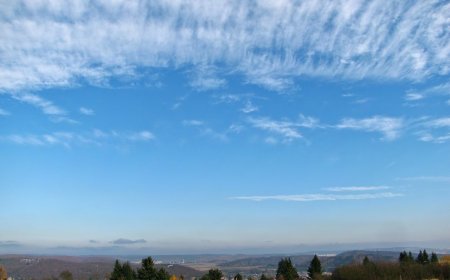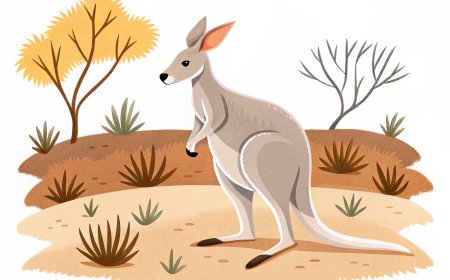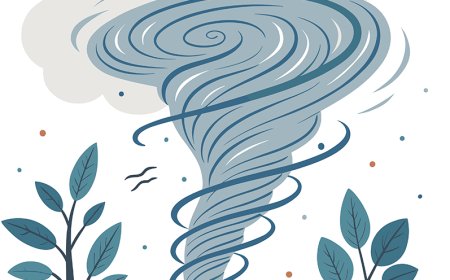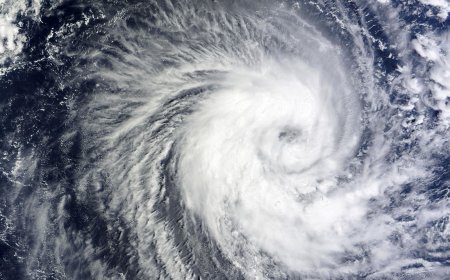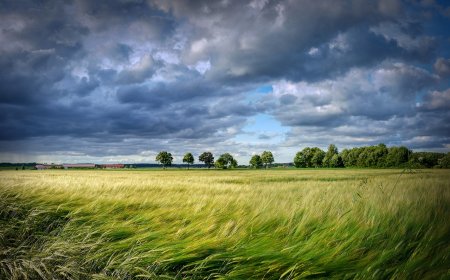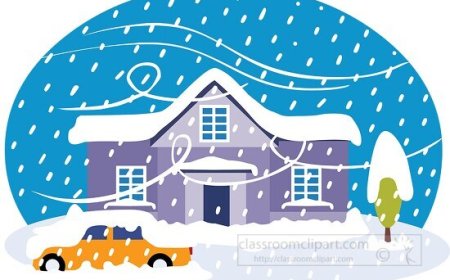Blizzard Facts for Kids – What It Is & How to Stay Safe
Learn what causes blizzards, how they differ from regular snowstorms, and how to stay safe during extreme winter weather. A student-friendly guide to blizzards.
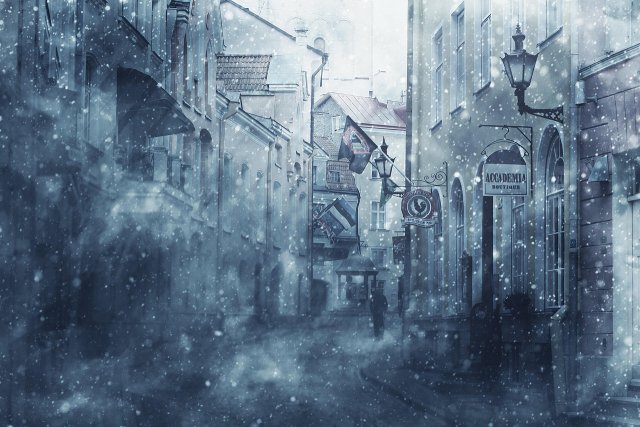
🧭 Introduction
A blizzard is not just any snowstorm-it's one of the most extreme kinds of winter weather. Blizzards combine heavy snow, strong winds, and often freezing temperatures to create dangerous conditions. These storms can block roads, knock out power, and make it almost impossible to see or travel. Learning how blizzards form and how to stay safe helps us prepare for winter's worst.
❄️ What Is a Blizzard?
A blizzard is a severe snowstorm with very strong winds and low visibility. Not every snowstorm is a blizzard. To be officially called a blizzard, a storm must have:
-
Winds of at least 35 miles per hour
-
Falling or blowing snow that reduces visibility to less than ¼ mile
-
Conditions that last for at least 3 hours
Blizzards can happen during or after snowfall when strong winds blow loose snow around, creating whiteout conditions. This makes it very hard to see, drive, or walk.
🌬️ How Do Blizzards Form?
Blizzards form when cold air, moisture, and lifting air come together with the right wind conditions. Here's how:
-
Cold air is needed to make snow.
-
Moisture comes from lakes, oceans, or wet ground-this turns into snow when the air is cold enough.
-
A weather front or storm system lifts the air, allowing clouds and snow to form.
-
Strong winds (35+ mph) blow the snow around, turning the storm into a blizzard.
Sometimes blizzards form from nor'easters, which are powerful storms that move along the U.S. East Coast.
🌨️ What Happens During a Blizzard?
During a blizzard, the combination of snow and strong winds creates dangerous conditions:
-
Whiteouts - You can't see more than a few feet ahead.
-
Snowdrifts - Wind piles up snow into high mounds that can block roads and doors.
-
Icy roads - Driving becomes very dangerous.
-
Cold exposure - It's easy to get frostbite or hypothermia if you stay outside too long.
-
Power outages - Ice and wind can break power lines, leaving people without heat.
Blizzards can last from a few hours to several days and affect large areas of land.
🧊 What Is a Ground Blizzard?
A ground blizzard happens when strong winds blow loose snow on the ground-even if no snow is falling from the sky. These can be just as dangerous as regular blizzards because of low visibility and freezing temperatures.
🧠 Blizzard Safety Tips
If a blizzard is coming, it's important to be ready:
-
Stay indoors and keep warm.
-
Have an emergency kit with food, water, flashlights, and blankets.
-
Charge phones and have backup batteries.
-
Don't drive unless it's an emergency-roads may be slippery or blocked.
-
If you must go outside, dress in layers and cover all skin to avoid frostbite.
-
If you lose power, stay in one room and block drafts to keep heat inside.
After the storm, be careful when shoveling snow-it's heavy and can be hard on your body.
📚 Vocabulary Words
| Word | Definition |
|---|---|
| Blizzard | A snowstorm with strong winds and low visibility |
| Whiteout | When blowing snow makes it nearly impossible to see |
| Snowdrift | A mound of snow formed by the wind |
| Nor'easter | A strong storm along the East Coast that can cause blizzards |
| Ground blizzard | Blowing snow near the ground that reduces visibility even without new snowfall |
💡 Interesting Facts About Blizzards
-
The Great Blizzard of 1888 dropped over 50 inches of snow in parts of the U.S.
-
Blizzards can happen in deserts if conditions are cold and windy enough!
-
Snow can fall at rates of 2-3 inches per hour during intense blizzards.
-
The wind in a blizzard can feel like being sandblasted by snow.
-
In 1972, Iran experienced a blizzard that buried entire villages in 26 feet of snow-one of the deadliest on record.
👧 Kid-Friendly Summary
Blizzards are strong snowstorms with lots of wind and blowing snow. They make it very hard to see and very cold outside. Blizzards can last for hours or even days and can make driving and walking unsafe. It's best to stay inside where it's warm and safe until the storm is over.
✅ Interactive Quiz
Q1: How strong are the winds in a blizzard?
A. 10 mph
B. 20 mph
C. 35 mph or more
D. 5 mph
Q2: What is a whiteout?
A. When the snow is too bright
B. When the snow turns white
C. When blowing snow makes it hard to see
D. When snow covers your clothes
Q3: What should you do during a blizzard?
A. Go for a hike
B. Stay indoors
C. Drive to the store
D. Play in the snow for hours
Q4: What is a snowdrift?
A. A frozen lake
B. A windy snowflake
C. A pile of snow moved by wind
D. A snow-covered tree
Q5: Where are blizzards most likely to happen?
A. Tropical beaches
B. Warm deserts
C. Cold, flat areas like the Midwest
D. Rainforests
Scoring:
5/5 = ❄️ Blizzard Expert
3–4 = 🌨️ Winter Watcher
1–2 = 📘 Storm Starter




















































